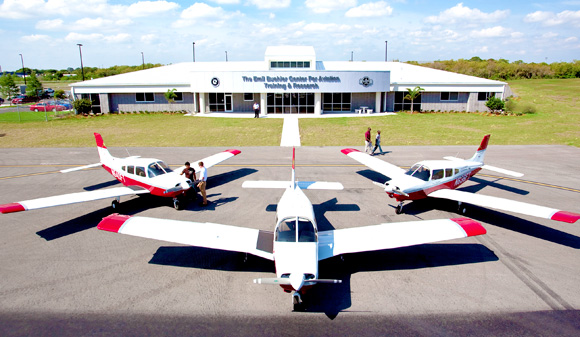“There is no sport equal to that which aviators enjoy while being carried through the air on great white wings.”
— Wilbur Wright, 1905
A degree in aviation and aerospace can hold very promising career prospects. Aviators are among the most sought after and highly paid professionals in any industry. Early on, it is important to map out what kind of shoes you want to fill in this industry.
Fancy working with a ground team of qualified professionals to take care of maintenance and efficiency related tasks within the fast-moving, ever-changing airline industry? Perhaps you may have envisioned yourself in a high-powered ‘corporate head honcho’ role in a government agency or top airline company.
Or you might find it more enjoyable to fly a propeller plane over “challenged” countries, delivering aid and relief to remote areas. Aviation degrees offer a wealth of technical knowledge and you can mold your career around it however you like.

A Wealth of Opportunities
A degree in aviation opens up a plethora of options to you: pilots, aircraft mechanics, flight operators, dispatch operations managers etc. the list is diverse.
If you’ve decided to go down the pilot route specifically, here are some applications you can look forward to.
Charter Operations
More executives are starting to rely on private jets to move around seamlessly between points of interest – this is where aviation graduates step up to the platter to pilot light, chartered aircrafts. You can expect to start your career with yearly earnings coming close to half a mill. Those employed by large businesses as in-house pilots can start making six figures that fall more in line with what commercial airlines offer.
Cargo Operations
Cargo plane designs have really picked up over the years. Coupled with increasing, urgent business needs, air services are preferred by many large organizations for package or inventory delivery. Worried about making passengers nervous with your novice landing skills? Gain “air time” by piloting these big jets.
Passenger Operations
Recent cost-cutting strategies within the airline industry have created room for new pilots to occupy lucrative positions. Working conditions and hours as well as flight schedules are regulated by federal agencies; newer pilots flying regional and relatively smaller planes can make over $43000 during their initial year of service.
Gain air time including experience flying larger aircraft, and you can cross the $100,000 mark in your first year. Not to mention the bonuses you might get for punctuality, performance and customer satisfaction.
Astronaut
NASA scientists and engineers are known to be very hard workers not just in space, but on the ground as well. Most well-trained and seasoned astronauts make approximately $80,000 each year, and then there are the benefits that come with being a part of US space programs.
Public Safety
Government and law enforcement agencies offer employment to pilots who are willing to track criminals, be a part of search and rescue efforts, enforce certain traffic laws from the air or transport sensitive cargo. Fires gone wild require the expertise and experience of aerial firefighters.
Tour Operations
What tourist would want to pass up the opportunity to have an aerial view of their favorite spots? Major cities as well as scenic resorts employ pilots who provide aerial tours to excited vacationers and business travelers looking for a little escapism. Use your skills and experience to maneuver your party through complex flight paths while entertaining them with destination facts and perhaps a little humor.
Aerial Photography
If you want to use your flight time to capture hi-res images of landmarks and other terrain, you might get hired by a commercial developer, estate broker or mapping company. This is a chance to channel your creative prowess, while making a lucrative living along with recurring royalties. Although earnings depend on how your work is utilized.
From an employer perspective, an aviation degree from a certified institution shows your level of commitment and dedication. Many commercial airlines also encourage fresh college graduates to apply.